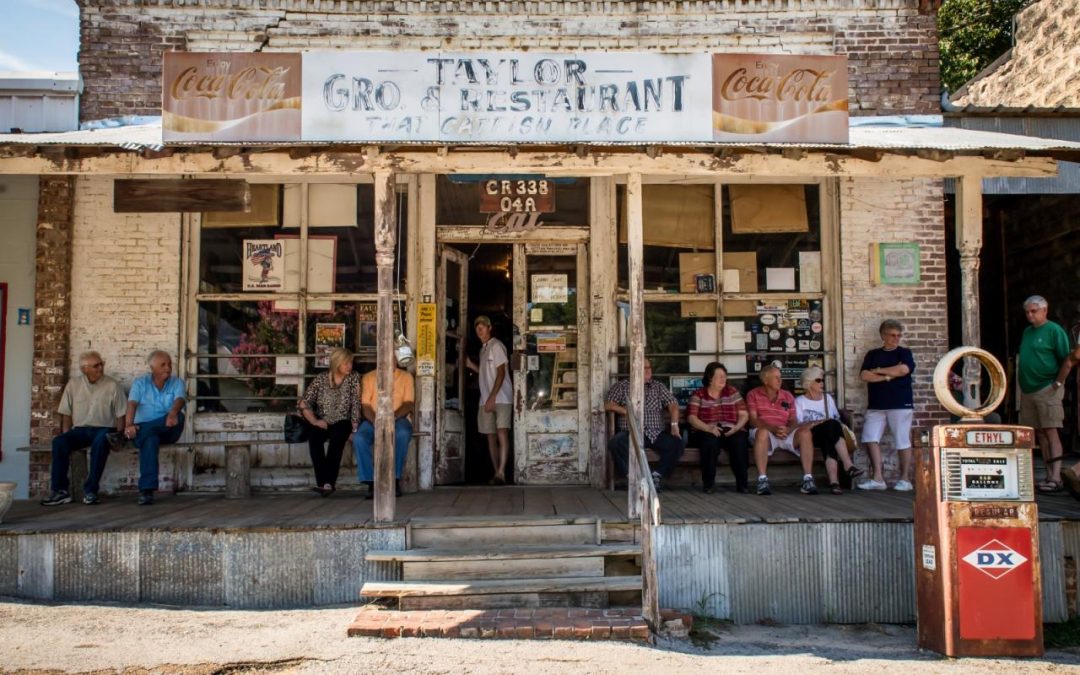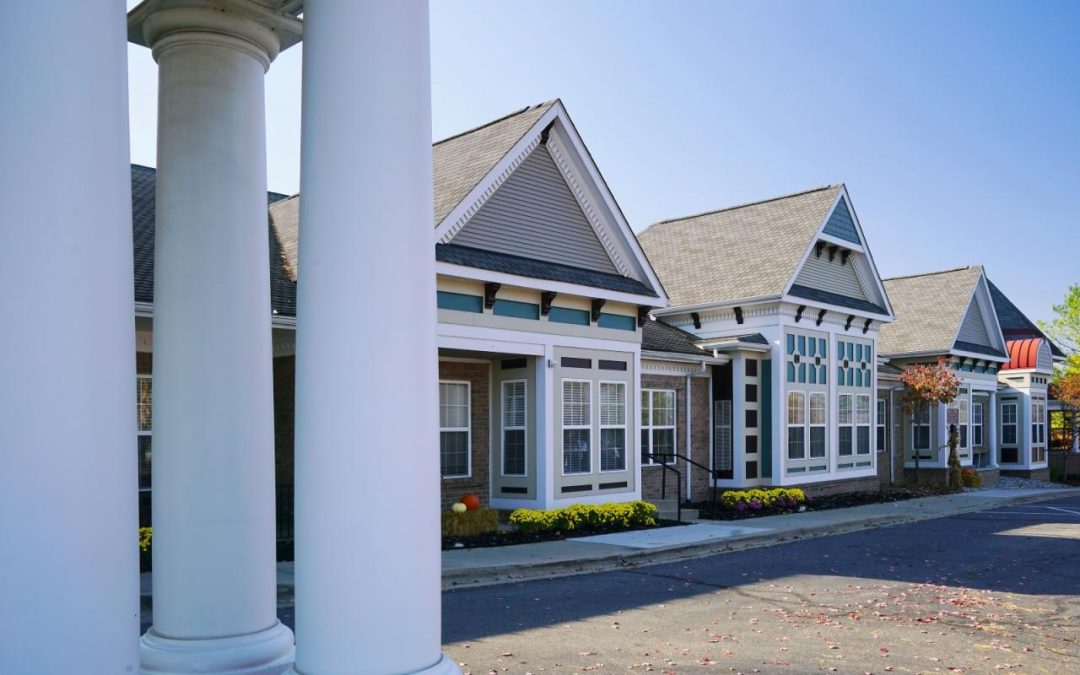
The Promise of an Age-Friendly Ecosystem
Generations Journal, vol. 49, no. 1 (Spring 2025)
The articles in this issue were written prior to the sweeping changes made to federal and state health programs and reductions in the federal workforce. At time of publication, these programmatic changes are not complete, but the editors acknowledge that these significant changes may have a profound impact on the programs and services that serve older people, people with disabilities, caregivers, families, and communities across the country. Multi-sector collaborations and partnerships across the age-friendly ecosystem are now more important than ever.

Guest Editor: Karon L. Phillips, PhD

Guest Editor: Megan Wolfe, JD

Age-Friendly Public Health Systems
Abstract Trust for America's Health (TFAH) is leading efforts to make healthy aging a core function of the public health sector. Through TFAH's Age-Friendly Public Health Systems (AFPHS) movement, state, local, tribal, and territorial health departments are exploring and expanding their roles to improve the health of older adults, with a focus on health...

Equitable Adoption of the 4Ms in Age-Friendly Care
Abstract The Age-Friendly Health Systems movement, led by The John A. Hartford Foundation and the Institute for Healthcare Improvement, in partnership with many organizations and health systems, aims to address the growth of the older adult population and the challenges facing this population through the 4Ms framework: What Matters, Medication, Mentation,...

Building Livable Communities
Abstract The global age-friendly movement, launched in 2006 by the World Health Organization, has transformed how communities address aging population needs. In the United States, the AARP Network of Age-Friendly States and Communities (NAFSC) has played a critical role since 2012. This article examines the history and evolution of NAFSC, highlighting...

The Role of Age-Friendly Universities in the Age-Friendly Ecosystem
Abstract The Age-Friendly University movement aims to create inclusive educational environments promoting lifelong learning, intergenerational exchange, research, and community engagement by integrating the Ten Principles of an Age-Friendly University. Institutions foster environments supporting older adults' intellectual, social, and professional...

Dementia-Friendly Communities as a Catalyst for Cross-Sector Collaboration
Abstract Home- and community-based services and supports for people living with dementia are a critical component of age-friendly ecosystems. Dementia Friendly America (DFA) provides a framework to align best practices across age-friendly and dementia-friendly sectors. This article describes the history and initiatives of the DFA movement. Many Area...

Leveraging Disability Partnerships and Policies to Advance Age-friendly Ecosystems
Abstract The success of Age-Friendly Ecosystems depends upon the participation and buy-in of sectors and stakeholders that serve and affect older adults. The disability community is a critical partner that largely has not, to date, been included in age-friendly efforts. The significant percentage of older adults aging with and into disability, the...

State Multisector Plans for Aging Can Promote a More Coordinated “Ecosystem” for Older Adults
Abstract With increased uncertainty around federally funded programs, it is more important than ever for states to take the lead in ensuring that services and supports for their older populations are coordinated and efficient. To this end, more than half of U.S. states are developing Multisector Plans for Aging (MPA). These are state-led, cross-sector...

Creating a Harmonious Age-Friendly Ecosystem that Delivers
The Age-Friendly Ecosystem is a multi-sectoral framework that prioritizes improved quality of life for older adults through collaborative impact. Actively engaged sectors include healthcare systems, public health departments, the aging services sector, academia, businesses, and communities where the age-friendly concept has been adopted. Age-friendly...

Principles and Approaches for Unifying an Age-Friendly Movement
Abstract Age-friendly initiatives dispersed across sectors have the potential to coalesce into a broader movement. This article describes the concept of social movements and its relevance for bringing together efforts as part of an age-friendly ecosystem (AFE). It presents five shared principles and approaches for further unifying age-friendly efforts: a...

Co-creating Age-Friendly Futures
Abstract This article examines how cross-sector collaborations and leadership can be leveraged to advance age-friendly initiatives, with a particular focus on the role of co-production and the involvement of older adults. It first reviews examples of age-friendly initiatives from various regions in the Global North and South, highlighting multisector...

Advancing an Age-Friendly Ecosystem in Mississippi
Abstract Over the past 4 years, a partnership between the Mississippi State Department of Health (MSDH), the Mississippi Public Health Association (MPHA), and AARP Mississippi has been systematically and intentionally building an age-friendly ecosystem for Mississippi. Using the Collective Impact Model and the Age-Friendly Ecosystem framework, Mississippi...

Understanding and Addressing the Needs of Tribal Elders in Washington State
Abstract Washington State's Department of Health was selected in 2020 to join a Trust for America's Health expansion opportunity as part of its Age-Friendly Public Health Systems initiative that would include tribal public health departments, local health jurisdictions, and area agencies on aging. The goals were to address the social impact of COVID-19,...

The Impact of Cumulative Inequities on Older Adult Health
Abstract Older age can be the best of times, marked by health and happiness, or the worst of times, marred by disease and distress. Late-life health disparities do not emerge suddenly on one's 65th birthday; they can result from cumulative processes that span decades. Economic disadvantage and systems of racial oppression place individuals in...

The History and Imperative of the Age-Friendly Ecosystem
Abstract The Age-Friendly Ecosystem (AFE) movement has gained global momentum, reflecting the demographic shift toward an older population. This article describes the movement's historical development and examines key components of an AFE and the critical importance of cross-sector collaboration in pursuit of its full potential. The article suggests that...

The Promise of Age-Friendly Workplaces
Abstract The Age-Friendly Workplace initiative has gained significant traction in recent years as organizations adapt to shifting demographic trends and increasingly acknowledge the business and social importance of fostering inclusive and welcoming environments for employees across all age groups. Case studies offer valuable insights for practitioners and...

Preparing for the Future: Using Data to Support Aging in America
It's no secret that communities worldwide are experiencing a demographic shift, with older adults soon outnumbering younger generations. In the U.S., the Census Bureau projects that by 2034, adults ages 65 and older will outnumber children younger than 18 for the first time in history. West Health has worked with federal and state agencies to facilitate...

Five Years Later
The Centers for Medicare and Medicaid abandoned the residents of nursing homes 5 years ago. Now a Wild West of lawless private equity owners—and public apathy—threaten them again. As Trump appointee Mehmet Oz takes over the Centers for Medicare & Medicaid Services (CMS), we need to remember how CMS abandoned the residents of nursing facilities when...

Era of Empow(h)erment
Editor's Note: The John A. Hartford Foundation is collaborating with ASA to advance equity in aging by supporting ASA RISE, a 20-week social justice and leadership program for rising leaders of color in aging, and via the development and dissemination of equity-related, partnership-based thought leadership through ASA's Generations platform. This blog post...

Ageism in Medicine: How Bias Compromises Care and Drives Up Costs
America's healthcare system faces a challenge as our population ages: ageism in clinical settings. Ageism is the systematic bias against older adults that not only compromises quality of care but also drives inefficiencies and unnecessary costs throughout our healthcare system. Evidence demonstrates that addressing ageist practices could improve health...

Transforming How CCRCs Operate
This is the third of three blog posts in which University of North Carolina-Chapel Hill Professor James H. Johnson, Jr., PhD, lays out the current landscape facing CCRCs, from placement challenges for older adults to strained workforce issues to strategies for the future. In my previous two posts, I addressed incoming resident and workforce issues and...
Staff
Editor-in-Chief: Leanne Clark-Shirley, PhD
Senior Editor: Alison Biggar
Issue Contents
Age-Friendly Public Health Systems
Abstract Trust for America's Health (TFAH) is leading efforts to make healthy aging a core function of the public health sector. Through TFAH's Age-Friendly Public Health Systems (AFPHS) movement, state, local, tribal, and territorial health departments are exploring...
Equitable Adoption of the 4Ms in Age-Friendly Care
Abstract The Age-Friendly Health Systems movement, led by The John A. Hartford Foundation and the Institute for Healthcare Improvement, in partnership with many organizations and health systems, aims to address the growth of the older adult population and the...
Building Livable Communities
Abstract The global age-friendly movement, launched in 2006 by the World Health Organization, has transformed how communities address aging population needs. In the United States, the AARP Network of Age-Friendly States and Communities (NAFSC) has played a critical...
The Role of Age-Friendly Universities in the Age-Friendly Ecosystem
Abstract The Age-Friendly University movement aims to create inclusive educational environments promoting lifelong learning, intergenerational exchange, research, and community engagement by integrating the Ten Principles of an Age-Friendly University. Institutions...
Dementia-Friendly Communities as a Catalyst for Cross-Sector Collaboration
Abstract Home- and community-based services and supports for people living with dementia are a critical component of age-friendly ecosystems. Dementia Friendly America (DFA) provides a framework to align best practices across age-friendly and dementia-friendly...
Leveraging Disability Partnerships and Policies to Advance Age-friendly Ecosystems
Abstract The success of Age-Friendly Ecosystems depends upon the participation and buy-in of sectors and stakeholders that serve and affect older adults. The disability community is a critical partner that largely has not, to date, been included in age-friendly...
State Multisector Plans for Aging Can Promote a More Coordinated “Ecosystem” for Older Adults
Abstract With increased uncertainty around federally funded programs, it is more important than ever for states to take the lead in ensuring that services and supports for their older populations are coordinated and efficient. To this end, more than half of U.S....
Creating a Harmonious Age-Friendly Ecosystem that Delivers
The Age-Friendly Ecosystem is a multi-sectoral framework that prioritizes improved quality of life for older adults through collaborative impact. Actively engaged sectors include healthcare systems, public health departments, the aging services sector, academia,...
Principles and Approaches for Unifying an Age-Friendly Movement
Abstract Age-friendly initiatives dispersed across sectors have the potential to coalesce into a broader movement. This article describes the concept of social movements and its relevance for bringing together efforts as part of an age-friendly ecosystem (AFE). It...
Co-creating Age-Friendly Futures
Abstract This article examines how cross-sector collaborations and leadership can be leveraged to advance age-friendly initiatives, with a particular focus on the role of co-production and the involvement of older adults. It first reviews examples of age-friendly...
Advancing an Age-Friendly Ecosystem in Mississippi
Abstract Over the past 4 years, a partnership between the Mississippi State Department of Health (MSDH), the Mississippi Public Health Association (MPHA), and AARP Mississippi has been systematically and intentionally building an age-friendly ecosystem for...
Understanding and Addressing the Needs of Tribal Elders in Washington State
Abstract Washington State's Department of Health was selected in 2020 to join a Trust for America's Health expansion opportunity as part of its Age-Friendly Public Health Systems initiative that would include tribal public health departments, local health...
The Impact of Cumulative Inequities on Older Adult Health
Abstract Older age can be the best of times, marked by health and happiness, or the worst of times, marred by disease and distress. Late-life health disparities do not emerge suddenly on one's 65th birthday; they can result from cumulative processes that span decades....
The History and Imperative of the Age-Friendly Ecosystem
Abstract The Age-Friendly Ecosystem (AFE) movement has gained global momentum, reflecting the demographic shift toward an older population. This article describes the movement's historical development and examines key components of an AFE and the critical importance...
The Promise of Age-Friendly Workplaces
Abstract The Age-Friendly Workplace initiative has gained significant traction in recent years as organizations adapt to shifting demographic trends and increasingly acknowledge the business and social importance of fostering inclusive and welcoming environments for...
Preparing for the Future: Using Data to Support Aging in America
It's no secret that communities worldwide are experiencing a demographic shift, with older adults soon outnumbering younger generations. In the U.S., the Census Bureau projects that by 2034, adults ages 65 and older will outnumber children younger than 18 for the...
Five Years Later
The Centers for Medicare and Medicaid abandoned the residents of nursing homes 5 years ago. Now a Wild West of lawless private equity owners—and public apathy—threaten them again. As Trump appointee Mehmet Oz takes over the Centers for Medicare & Medicaid Services...
Era of Empow(h)erment
Editor's Note: The John A. Hartford Foundation is collaborating with ASA to advance equity in aging by supporting ASA RISE, a 20-week social justice and leadership program for rising leaders of color in aging, and via the development and dissemination of...
Ageism in Medicine: How Bias Compromises Care and Drives Up Costs
America's healthcare system faces a challenge as our population ages: ageism in clinical settings. Ageism is the systematic bias against older adults that not only compromises quality of care but also drives inefficiencies and unnecessary costs throughout our...
Transforming How CCRCs Operate
This is the third of three blog posts in which University of North Carolina-Chapel Hill Professor James H. Johnson, Jr., PhD, lays out the current landscape facing CCRCs, from placement challenges for older adults to strained workforce issues to strategies for the...
Editorial Advisory Board
Ruth E. Katz, Chair
Wendy Lustbader, Immediate Past Chair
Tobi Abramson, PhD
Joe Angelelli, PhD
Orion Bell, MBA
Fayron Epps, PhD
Mary L. Flett, PhD
Sarah Galvan, JD
Robyn L. Golden, LCSW
Donna M. Lisi, PharmD
Heather Menne, PhD
Najja Orr, MBA, DBA
Winifred V. Quinn, PhD, FAANP, FAAN
Laura Trejo, PhD
ISSN 2694-5126
Suggested citation for articles in this issue: [Last Name(s), First Name(s)]. “Article Title.”
About Generations Journal
Generations Journal is the quarterly journal of the American Society on Aging. Each issue is devoted to bringing together the most useful and current knowledge about a specific topic in the field of aging, with emphasis on practice, research, and policy.
